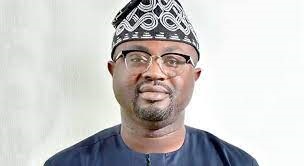Minister of Interior, Dr Olubunmi Tunji-Ojo, says statistics indicate that no fewer than 99,985 Nigerian students left the country to enrol in universities in the United Kingdom between 2017 and 2022.
The minister disclosed this at the opening ceremony of the 2023 University of Lagos International Week on Monday, in Lagos.
The theme of the international week is ‘Breaking the Borders of Partnership’.
“Every year, over 100 Nigerian students benefit from the scholarship for postgraduate and PhD degrees. We have hundreds of professionals and entrepreneurs leaving our shores to break new grounds across our lands.
“And on our part, we must ensure that we play our part in the actualisation of their dreams. They carry our identity, one which not only aids their pursuit, but also defines them.
”According to the Higher Education Statistics Agency (HESA), reports have shown that about 99,985 Nigerian students left this country to enrol in universities in the United Kingdom between 2017 and 2022.
“While many may contend that majority of these students have simply ‘JAPA’ for other reasons, we cannot also deny the fact that a larger chunk of these students have left with the purest of intent to seek further knowledge for self advancement.
“Now, in going all through this therefore, I may want to ask, why our students should now suffer to acquire international passports, even when they have paid for it.
“Their pursuit of breaking new grounds across borders, is one which gives us great joy as through our children, we sustain the future,” he said.
The minister said the ministry had commenced the automation of end-to-end passport application process, and had given a timeline from which Nigerians would begin to experience the “sweet experience.
“By implication, Nigerians will not need to wait longer than two weeks before they get their passport.
“By January next year, Nigerians will be able to complete this application process online, and by February next year, with collaboration and partnership with other relevant stakeholders, Nigerians will have their passport delivered to their homes, offices and other locations of their choice,” he stated.
According to him, this will also be extended to the visa application process, with technology deployed throughout the entire process, to make it as seamless as possible.
The minister said to achieve this, his office had set everything into motion to open 12 more visa application centres across the world.
“In this regard, we are also working on strengthening our visa-on-arrival policy.
“We are working with the Ministry of Foreign Affairs to enforce the principle of reciprocity and a committee has been set up in the ministry to achieve this,” he said.
Tunji-Ojo noted that the theme of the event reminded citizens that the challenges faced as a people were not confined by geographical boundaries.
He said that whether it was addressing climate change, promoting global health, ensuring peace and security, or fostering economic prosperity, the world was more interconnected than ever before.
According to him, there is the need to embrace partnerships that transcend borders, to tackle these complex issues effectively,
“In breaking the boundaries of partnership, we are not using rhetoric. We lead from the front. This was strongly expressed by President Bola Tinubu, while recently addressing the United Nations General Assembly (UNGA 78),” he said.
The minister expressed his unwavering faith in the transformative power of education and research.
He said that together, citizens could break the borders that hindered collaboration and unlock a brighter future for Nigeria, and by extension, Africa.
“ Let our academic community be at the forefront of this noble endeavour, inspiring the next generation to build a Nigeria that thrives on unity, innovation, and shared prosperity.
“I am making this call to the academic community, using this citadel of learning as a point of contact. As custodians of knowledge, you have a pivotal role to play.
“ I implore you to continue your invaluable work, not only within the walls of your institutions but also in the broader context of our society.
“Through innovative research, academic recommendations and forward-thinking curriculum, you can instill in our new generation of Nigerians, a profound understanding of the imperative of collaboration over competition.
“Your academic recommendations hold the potential to reshape policies and practices. Engage with policymakers, industry leaders and civil society to ensure that your insights are translated into action.
“Advocate for evidence-based decision-making that prioritises the welfare and prosperity of all Nigerians,” he said.
On his part, the keynote speaker at the event, Prof. Iain Gillespie, Vice Chancellor, University of Dundee, U.K, said institutions, industries and policy makers across the globe must work together to address common challenges.
According to him, partnership has the ability to bring about expertise and capacity.
“It requires genuine alignment of good and equitable relationship to deliver meaningful impact,
“Universities on their part, are indeed meant to be centres for commitment to excellence in knowledge, character and service to humanity.
“They must strive to transform lives locally and globally through triple intensity, to deliver on social purpose,” he said.
Earlier in her welcome address, the Vice Chancellor of UNILAG, Prof. Folasade Ogunsola, said at the turn of the 21st century, the world had started to come to terms with the impact of globalisation.
She said this was so in all its ramifications on how life would be lived in the present and in the future.
According to her, global-higher education sector was not left out as it was itself both a driver of, and a respondent to the changes being witnessed.
She noted that there was growing recognition among its managers on the place of universities and like institutions, as research, teaching and learning arena,
Ogunsola said managers believed that if such institutions were going to be valuable to the knowledge economy of the 21st century, they would have to adapt to the imperatives of internationalising higher education.
“As we all know, the productivity of academia as the gateway to a knowledge economy is enriched by cross-fertilisation of thoughts and ideas that add depth and breadth to knowledge and understanding.
“It is against this backdrop that University of Lagos adopted its internationalisation agenda and strategy about a decade ago.
“The COVID-19 pandemic, for all its negative impact, was unprecedented in its elevation of the awareness that those at the vanguard of the knowledge economy would need to take urgent action to evolve a new culture committed to promoting local and global knowledge sharing, partnerships and collaborative actions to advance teaching, learning and research.
“Like never before, it became clear that the world had, indeed, become a global village and we all need to be talking to one another, teaching and learning from one another, collaborating with one another to unlock the potential of research for solving human problems.
“But the pandemic did even more, it compelled the world to fast track its embrace of technologies that enable us to break down the traditional barriers of time and space. What more leverage do we need for internationalising higher education?
“My strategic plan which is premised on four cardinal pillars namely: Financial Reengineering, Infrastructural Development, Research and Manpower development with the acronym “FIRM” aims to make UNILAG Future-Ready, yielding inquiring minds, discoveries, sound character, and a globally impactful workforce while addressing the developmental needs of today.
“In this plan, internationalisation remains a veritable route to foster the improvement of the quality of education and research as well as expose our staff and students to global best practices, and assist them to make meaningful contribution to the society in an increasingly globalised world,” Ogunsola stated.
The Executive Secretary TETFund, Mr Sonny Echono, said the organisation was working hard to promote internalisation in terms of scholarship.
He said that it had offered scholarship to over 40,000 scholars to do their Masters and PhD programmes abroad.
“We want to also be able to attract foreign students from all over the world to come to Nigerian universities and we can only get this done by improving not just our curricula to be globally competitive, but also ensure that we have a stable academic calendar.
“Our lecturers must also take up the responsibility of ensuring that when they supervise the postgraduate students, they do so on time, so that the duration of the programme will not be too long.
“I am pleased with the quality of guest speakers that gathered here from across the globe to focus on issues of our linkages, partnership, collaboration and building of capacity to attract international grants, participate in multidisciplinary research and being able to find joint solutions to global challenges,” Echono said.

























